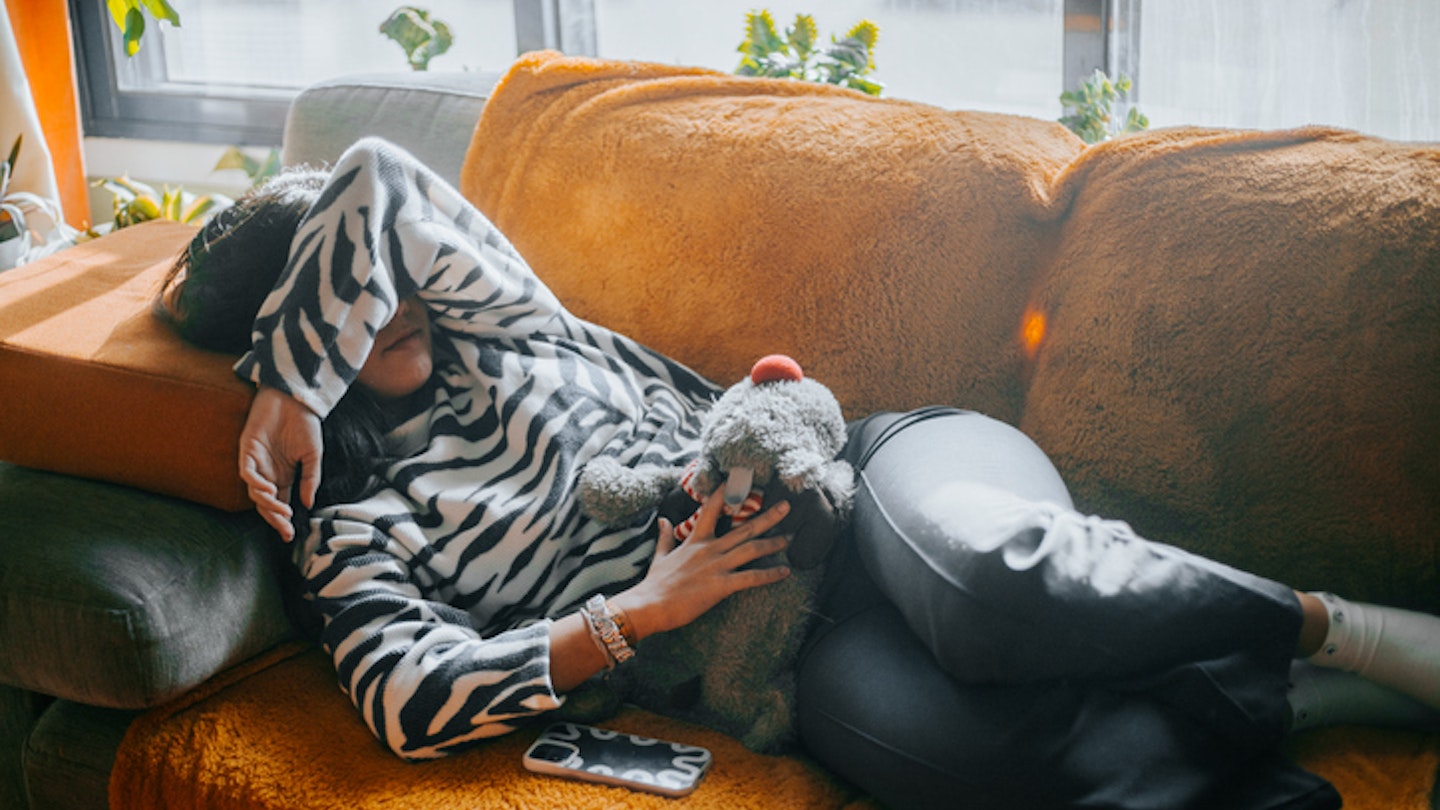We've all dragged ourselves out of bed, dosed ourselves up to the eyeballs with anti-flu medication and then jumped on a bus or train to generously share our germs with our fellow commuters and colleagues. Well, maybe struggling into work when we should be in bed is becoming a thing of the past, because according to new research, we're all taking more sick days. In fact, the number of workers taking sick days is at a 10 year high.
Stress was one of the biggest contributors to a rise in workplace absences over the past year, according to the research by The Chartered Institute of Personnel & Development (CIPD), alongside recurring cases of Covid-19 and long Covid and the cost-of-living crisis. They found that staff were absent from work for an average of 7.8 days over the past year, up from 5.8 days in 2019, before the pandemic and the highest since 2010.
It prompted some debate on social media, with one X (formerly Twitter) user wrote 'We've raised several generations of idlers who've grown up with high levels of self-entitlement. Some won't work, and those who do are now taking many more sick days. I worked for 56 consecutive years, taking just 8 sick days - for 5 of which I was in hospital having eye surgery.'
A rise in sickness isn't a good thing, obviously, but admitting we're too ill to work doesn't have to be negative. It's surely better than exhaustion or burn out caused by presenteeism (where you haul yourself into the office when you're not feeling well to prove how dedictaed you are.)
Historically, there is a lot of shame around calling in sick (blame cult films like Ferris Bueller’s Day Off, which centres around a student’s mission to have the best fake sick day ever). And we all know that one person who boasts about having not taken a sick day all year, expecting a pat on the back for coughing and spluttering all over the office. A 2019 study found that more than 80% of British employees continue to work when they are ill.
The politics of sick days became even more complicated during the pandemic. On the one hand, they became more acceptable thanks to enforced isolation and social distancing rules. But those who had the privilege to work from home during the period encountered another issue – there was less of a need to call in sick when you could (technically) still work from the sofa. At the very least, it encouraged us to say ‘I’m unwell but I will be checking emails from bed’, something that wasn't really a thing before remote working became widely accessible. Polling data from the US suggests two-thirds of workers feel remote work adds pressure to work when they’re sick.
Nobody wants to be labelled a skiver, but when the dreaded lurgy hits, surely it's better to stay wrapped in the duvet at home than drag yourself into the office - and infect everyone else while you're at it. Research from Queen’s University found that people who went to work sick cost their companies twice as much in productivity losses as those who stayed home.
There's plenty of reasons to shut your laptop when you aren't feeling well - even if you can stay at home. ‘While taking a sick day may seem counterproductive in the short term, it can lead to increased productivity and avoid presenteeism and its associated costs to the business,’ says Anji McGrandles, workplace mental wellbeing expert and founder of The Mind Tribe. ‘Trying to work while sick often results in reduced efficiency, errors, and lower-quality work. Taking the time to recover can help you return to work at full capacity.’
Now let's address the idea of taking a sick day when you aren't outwardly 'sick.' While some are quick to scream 'slacker', the 'mental health day' is thankfully becoming more widely accepted - and some say can even help productivity. McGrandles explains that taking a mental health day has multiple benefits, such as reduced stress, improved focus, and productivity and even the reduction of physical health symptoms.
‘A day off allows you to focus on self-care and emotional healing. It’s an opportunity to address feelings of worry, anxiety, or sadness, and to engage in activities that promote good emotional wellbeing, such as mindfulness, relaxation, or seeking professional support,’ she says. ‘Addressing worries and anxieties early through a mental health day can prevent them from escalating into more serious mental health conditions. It's a proactive way to care for your mental health.’
So you’ve braved the call to your boss and you’ve briefed your team about what to do in your absence. Now, how do you make the most of your day off? Rest is key, says McGrandles, as is catching up on any sleep and staying hydrated.
‘If applicable, use the time to address mental health concerns. Engage in relaxation techniques, mindfulness, or activities that promote emotional wellbeing. Consider using some of your sick day to reflect on your work-life balance and explore ways to manage stress more effectively,’ she says. ‘If you feel up to it, stay connected with colleagues through email or messages to ensure essential matters are handled smoothly during your absence. However, if you are not, resist the temptation to work during your sick day. The goal is to recover fully, and overworking can prolong your illness and hinder your ability to recharge.’
